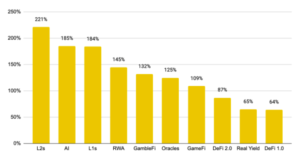Rwanda has officially unveiled its National Fintech Strategy, designed to guide Rwanda’s fintech development from 2024 to 2029.
The plan, launched by the Ministry of ICT and Innovation, in partnership with Access to Finance Rwanda (AFR), is described as a comprehensive roadmap that aims to:
- Increase financial inclusion, which is already really high at 96%
- Attract investments, and
- Position the country as a leading fintech hub on the continent.
Rwanda, whose Kigali Financial Center was ranked the 3rd best in 2023, is looking to solve the bottlenecks faced by the fintech industry which has contributed to the economic development of the country.
“As part of the release from finance, from a policy level, we made efforts to understand some of the challenges that the fintech industry is facing. We are bringing together all stakeholders to solve these challenges and foster growth in the region,” stated Paula Ingabire, the Rwanda Minister of ICT and Innovation.
“I think everyone in Rwanda needs to continue committing to the fintech community. Together, we can overcome the industry’s challenges, explore new possibilities, and foster innovation,” she added.
REPORT | Why the Kigali International Financial Center in Rwanda Was Ranked 3rd Financial Center in Africa in 2023
“To make Rwanda as a preferred destination for investors means we must have better legal framework, develop necessary skills and enhance our promotion… pic.twitter.com/5tSBkNpIlR
— BitKE (@BitcoinKE) December 30, 2023
The efforts of the fintech industry were further enunciated by Jean Bosco Iyacu, CEO of Access to Finance Rwanda.
“It’s rare to see different organizations coming together to support one strategy. Fintechs have used resources to share ideas and create markets, and this strategy builds on that momentum,” he said.
Iyacu highlighted the impact of interoperable platforms like e-Kash in fostering innovation within the fintech ecosystem by enabling seamless integration between financial institutions and fintechs at a reduced cost.
He noted:
“The central bank and capital markets have collaborated with us to tackle identified challenges, ensuring the consistent implementation of solutions.”
John Rwangombwa, the Governor of the National Bank of Rwanda, praised fintechs for their role in improving financial accessibility. He emphasized the achievements of the Fintech Heritage Sandbox, introduced in 2022, which has helped more than 50 fintech companies test and enhance their innovations.
“The sandbox provides a live but controlled environment for both local and global fintechs to test their innovations. This creates a pathway for scaling solutions within Rwanda and across the region,” Rwangombwa explained.
Rwangombwa, who has said the bank will be introducing cryptocurrency regulations in the first half of 2025, highlighted the importance of the sandbox in enabling innovation while managing risks.
REGULATION | ‘We Cannot Get Rid of Cryptocurrencies’, Admits Rwanda Central Bank Governor Confirming Upcoming 2025 Regulations
The Governor revealed this was part of a response on the use of #Bitcoin in the East African nation.https://t.co/puWlSgLfBn pic.twitter.com/zlmAO21Wdy
— BitKE (@BitcoinKE) November 28, 2024
At the same time, Richard Tusabe, the Minister of State for the National Treasury, emphasized the importance of innovation and education in driving Rwanda’s fintech goals forward.
“This strategy reflects our country’s commitment to integrating emerging technologies into the financial sector. Innovation drives progress in financial services, enhancing product delivery, operational efficiency, and market competitiveness,” Tusabe remarked.
___________________________________________

